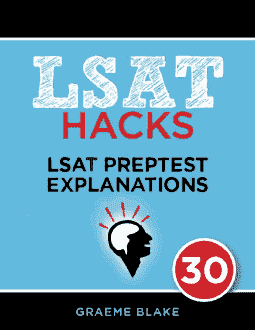QUESTION TEXT: The student body at this university takes courses in a…
QUESTION TYPE: Flawed Parallel Reasoning
CONCLUSION: Miriam takes courses in a wide range of disciplines.
REASONING: The student body (e.g. all of the students) takes courses in a wide range of disciplines. Miriam is a student at the university.
ANALYSIS: What a bad argument. It’s assuming that what is true of the whole is true of every part. Most universities include students who study history, chemistry, economics, biology, etc. The student body studies lots of things but each student specializes.
Miriam might study only 1-2 subjects.
Whole-to-part errors are different from part-to-whole errors. The first one assumes that each individual is like the whole. The second one assumes that the whole is like each individual.
___________
- This is a good argument. It seems to be saying that every student at the school takes math. Therefore Michael must take math.
- CORRECT. This makes the same whole to part error. The board as a whole has written on many issues, sure. But that doesn’t mean that every individual member writes on many issues. They may each have a specialty.
- This makes a part to whole argument, but it isn’t an error. It’s assuming (correctly) that if the parts are heavy then the whole bulldozer will be heavy too.
- This is a bad argument because we’re not told anything directly about new cars. But it doesn’t make a whole-to-part error.
- This make a part-to-whole error.


This one is a tough one, how would I have been able to make the distinction that A) isn’t referring to all the students of the school compared to B)which only states the editorial board? I selected A) and of course got it wrong because I assumed “the student body” and “the students at this school” are practically similar if not almost identical. Compared to “The editorial board” it seems like a major curveball here.
So it depends how you phrase a thing. Consider these two statements:
* Humans breathe air —> refers to all humans and the group
* Humans vote for a wide variety of political parties —> refers to only the group
There’s no logical distinction in how both are written. Instead it depends on common knowledge. We know you can only vote for one party generally. So we can figure the second sentence only refers to the group.
Contrary to some advice, not only can you use common knowledge on the lsat but in some cases you *must*.
It’s the same with “(all)” students take math” and “the student body takes”. In this case there’s also a logical distinction students refers to each student individually or a group. Student body only refers to a group.
But you could have said “the students at this school take courses in a wide range of disciplines” and I don’t think the question would have changed. That phrase can refer to a group or to each individual and a group, and it depends on common knowledge to interpret the meaning. Language is messy.
Editorial board vs person on the board has the same group vs individual issue.